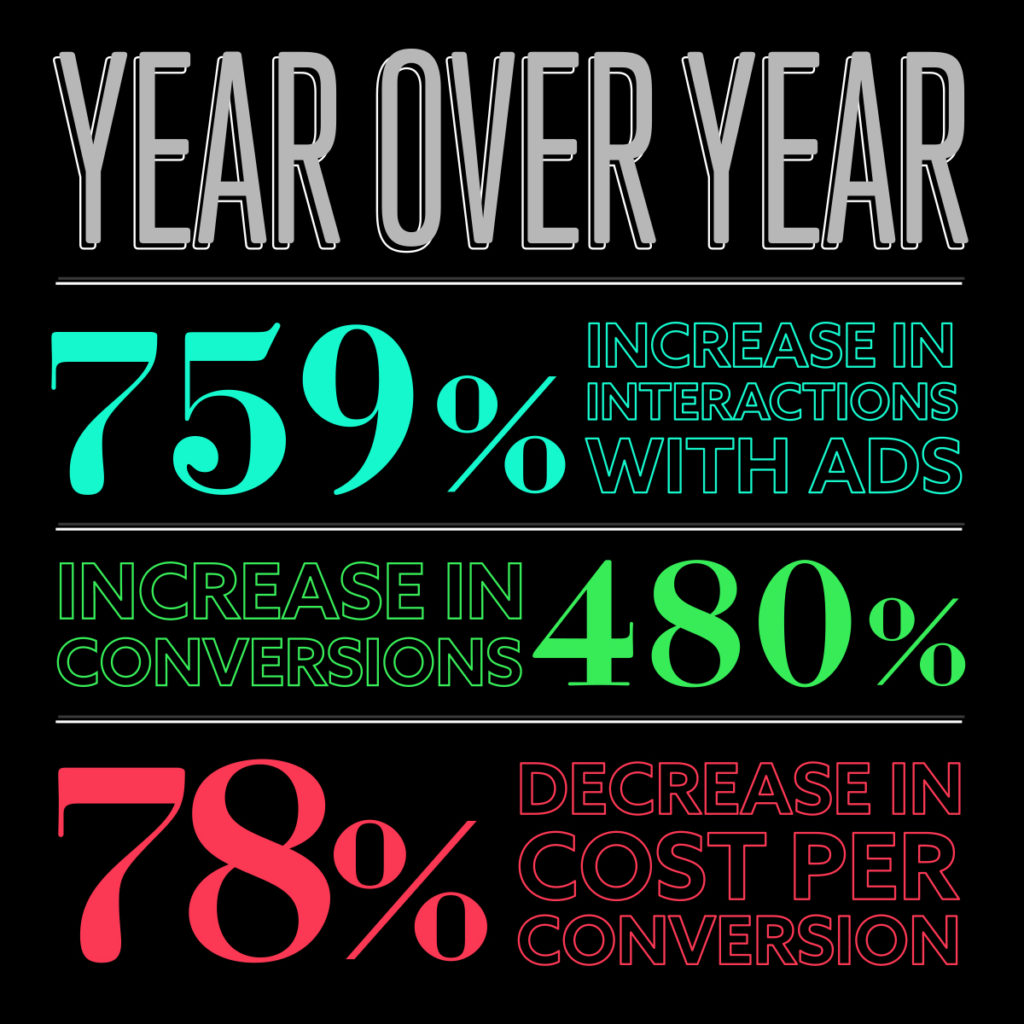
Meet Pin Chasers
Pin Chasers is a family-owned bowling business based in Tampa, Florida. They’ve been around for over 50 years. With three bowling centers in the Tampa Bay area, they’re a top destination for kids’ birthday parties, league bowling, family fun, and nights out with friends.
A Struggling AdWords Campaign
Pin Chasers began using Google AdWords in June 2011. They knew they needed to be present in the paid search and display advertising space, but didn’t know how to get a return on their investment.
In the four years they managed their own AdWords account, their Click-Through-Rate (CTR) was 0.48%. Pin Chasers came to us in hopes of optimizing their AdWords account to increase conversions and decrease the cost-per-converted-click.
Here’s How We Optimized AdWords for Pin Chasers
Getting our bearings
Every great solution starts with defining the problem, and that’s what we did first. We met with our client to determine campaign goals. These are questions every business should have answers to before running AdWords:
- What areas of your business are you trying to increase traffic to?
- Where are your organic rankings lacking?
- What do you hope to gain in terms of rankings and visibility?
We ran a thorough audit of current and historical ad spends and performance to see how things added up.
Setting our course
We needed to know what keywords were converting, and where we were missing the boat, so we ran an extensive keyword analysis using Google Keyword Planner. We scoured our lists for search volume data, competition, suggested bids, established our locations and specified our negative keywords.
We established a list of strong opportunities to rank highly for low-cost keywords that target potential customers near the bottom of the funnel — most notably, people who wanted to schedule birthday parties for their kids.
Laser-like focus
As most business owners do, Pin Chasers had set up some very generalized campaigns around their most obvious (and generic) keywords.
We broke down general campaigns into campaigns where goals were more focused, and targeted keyword campaigns around their specific goals. For instance, instead of the general “parties” ads the client was running, we broke down this campaign into ad groups for Children, Adults, Fundraisers, Corporate, and Teams. We then created text ads that matched these keywords and — most importantly for conversion — sent the visitor to a related landing page.
Bringing them home
There’s nothing more annoying than clicking a paid ad and landing on the homepage of a website or worse, a page that’s completely unrelated to the ad you clicked. Visitors are savvy, and expect to land exactly where they wanted to go.
We redirected every ad group to a specific landing page (created with HubSpot), and made sure our messaging matched the ads themselves to help the visitor feel like they made a good choice in clicking our ad. This allows users to stay focused on why they initially clicked on the ad and hopefully convert by filling out a form.
Continuous improvement
It doesn’t end there. Over the course of the year, we tested a variety of text and display ad versions with short windows to see what worked (and what didn’t), and continue to do so.
Through analytics, we know that their party planners book parties during the workday hours, so we optimized our ad schedules and rotations to run most prominently during those hours.
In August, Google rolled out an update that allowed for AdWords text ad expansion. Although the results of that change aren’t included in this case study, the changes we made to accommodate continue to reap rewards.
The result?
Comparing the full year we’ve managed to the previous year they managed themselves, these are the results we saw:
- Interaction rate increased by 759%
- Conversions increased by 480%
- Cost per converted click decreased by 78%
- AdWords spend increased by only 3%

Wondering if your campaigns are performing as well as they could? Let us help!